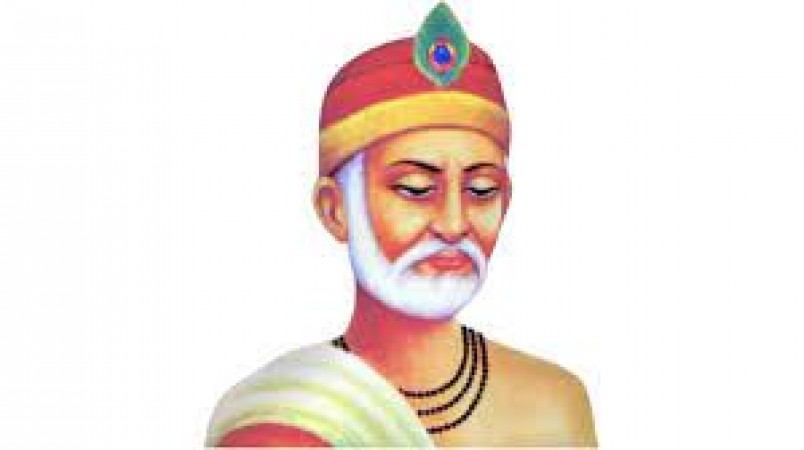
Kabir Das, often referred to simply as Kabir, was a renowned mystic poet, saint, and philosopher who lived in India during the 15th century. His profound teachings and spiritual verses have left a lasting impact on Indian literature, philosophy, and religious thought. Kabir's poetry transcends the boundaries of caste, religion, and social divisions, advocating for unity, love, and compassion among all beings. Kabir Das, the mystic poet of India, remains an eternal source of inspiration and wisdom. His teachings transcend time and space, carrying a message of love, unity, and spiritual realization that resonates with people from all backgrounds. In a world marked by divisions, Kabir's profound teachings act as a guiding light, encouraging us to seek the common thread that unites us all and to embrace the power of love in our journey towards spiritual awakening and societal harmony.
Kabir's exact birth and parentage remain a subject of debate, but he is believed to have been born in the city of Varanasi, Uttar Pradesh, India, in the early 15th century. It is said that he was born to a Brahmin widow and was abandoned as an infant. He was found and adopted by a Muslim weaver family, which exposed him to both Hindu and Islamic influences during his formative years. Kabir's early life experiences of growing up in a diverse environment played a significant role in shaping his worldview. Kabir embarked on a spiritual journey seeking truth and liberation. He studied under various spiritual masters, including Hindu ascetics and Muslim Sufi saints. His spiritual quest led him to adopt a syncretic approach that emphasized the underlying unity of all religions and rejected sectarianism.
Kabir's teachings were primarily conveyed through his dohas, a form of couplets in vernacular language accessible to the masses. His verses are characterized by their simplicity, wit, and profound wisdom. He used everyday metaphors and analogies to convey profound spiritual truths, making his teachings relatable and easily understandable by people from all walks of life.
Central Themes of Kabir's Poetry
Oneness of the Divine: Kabir emphasized the oneness of the divine and the unity of all existence. He saw God as formless and beyond the confines of religious labels, advocating for a direct and personal relationship with the divine.
Rejection of Ritualism: Kabir was critical of blind rituals and external observances, emphasizing the importance of inner devotion and genuine love for the divine.
Brotherhood of Humanity: Kabir's poetry spoke against caste discrimination, social divisions, and religious conflicts. He believed in the inherent equality of all human beings and encouraged people to rise above societal barriers.
Love and Compassion: Love was a recurring theme in Kabir's poetry. He believed that love was the path to divine realization and that true love transcends worldly attachments.
Kabir's teachings had a profound impact on both Hinduism and Islam. His universalist approach and message of unity continue to inspire people across religious and cultural boundaries. Kabir's poetry has been sung and recited for generations, and his verses are an integral part of the collective spiritual consciousness of India. His profound influence is evident in various Indian art forms, including music, dance, and theater. Kabir's teachings continue to be relevant in the contemporary world, where his message of love, harmony, and inclusivity holds the potential to bridge divides and foster a more compassionate and tolerant society.
also read - The Yajur Veda: The Sacred Knowledge of Rituals and Sacrifices